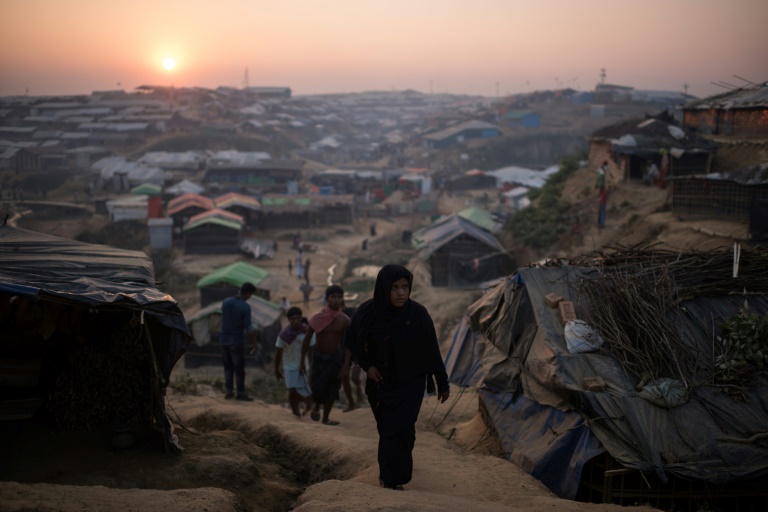The government of Bangladesh has stalled plans to repatriate Rohingya refugees to Myanmar, a decision the United Nation’s Children’s Fund (UNICEF) applauded on Friday.
“We welcome this move by the Bangladesh government,” UNICEF spokesperson Christophe Boulierac said at a briefing. “Any repatriation must be voluntary, sustainable and conducted in safety and with dignity.”
The announcement followed widespread protests on Wednesday in refugee camps in southern Bangladesh – a response to the Bangladesh army that had arrived to assist in collecting the first group of 2,200 Rohingya refugees for repatriation.
In October, Myanmar and Bangladesh agreed to repatriate Bangladesh’s Rohingya refugees and had built two repatriation centers for the transition.
“The overwhelming majority of refugees are unwilling to be repatriated unless their safety can be guaranteed,” Boulieac said. “For many, the trauma they witnessed during their exodus from Myanmar at the end of 2017 is still fresh in their minds.”
In August 2017, the Rohingya, a Muslim ethnic minority in Myanmar’s Rakhine state, became the targets of a genocide where rape, mutilation, and torture were used as “tactics of war” and villages torched.
This violence was overlooked by the country’s government, which does not consider the Rohingya to be citizens.
Over the course of the conflict, over 693,000 refugees fled into Bangladesh. It is, according to UNICEF and Doctors Without Borders (DWB), one of the fastest growing humanitarian crises in the world.
While many fear for their lives if they return to Myanmar, the living conditions in the camps continue to deteriorate. According to UNICEF’s Child Alter Report 2018, there are no opportunities for children to continue their education.
For those able to work, there are few opportunities “to earn money, and no land on which to grow vegetables, [as a result refugees] are dependent on aid handouts and their own slender resources.” This lack of options has caused people, especially women, to search for work beyond the camps. But moving has its own risks: refugees can be used for forced labor and lured into human trafficking.



